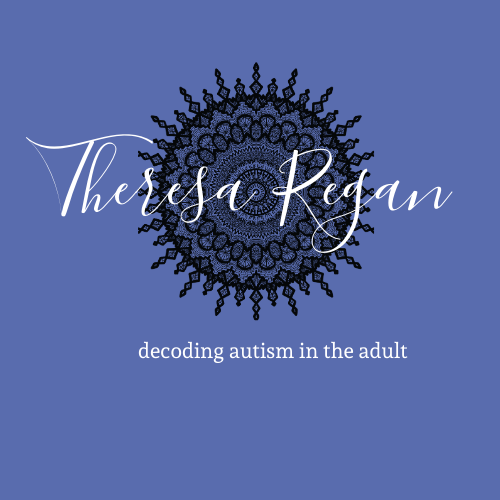Shifting Autistic Characteristics Across The Lifespan: The Impact of Aging
Description
Join Dr. Regan for the final episode in this series about how autistic characteristics may shift across the lifespan. This episode focuses on the life season of aging, including year 50 and beyond.
Recognizing Dysregulation on the Autism Spectrum
Gaining Momentum for Daily Activities
Email questions for Q and A podcast episode with Dr. Regan to [email protected]
Executive function book series (choose the book with the age range you are interested in): Smart But Scattered
Dr. Regan's Resources
New Course for Clinicians - Interventions in Autism: Helping Clients Stay Centered, Connect with Others, and Engage in Life
New Course for Clinicians: ASD Differential Diagnoses and Associated Characteristics
Book: Understanding Autism in Adults and Aging Adults, 2nd ed
Audiobook
Book: Understanding Autistic Behaviors
Autism in the Adult website homepage
Website Resources for Clinicians
Read the transcript:
1
00:00:02,540 --> 00:00:05,010
Hi everyone,
2
00:00:05,020 --> 00:00:19,460
this is dr Regan joining you again for our final episode here on autism in the adult in our series about shifts in the characteristics of autism across the lifespan.
3
00:00:20,330 --> 00:00:21,530
Many of you know,
4
00:00:21,530 --> 00:00:24,160
already that I am a neuropsychologist,
5
00:00:24,540 --> 00:00:27,360
I'm a certified autism specialist,
6
00:00:27,840 --> 00:00:38,850
an author podcast host here at autism in the adult and the founder and director of a diagnostic autism clinic for adolescents,
7
00:00:38,850 --> 00:00:41,960
adults and aging adults in central Illinois.
8
00:00:42,840 --> 00:00:46,760
We're going to get into this final episode of our series.
9
00:00:46,920 --> 00:00:48,560
But before we do that,
10
00:00:49,440 --> 00:00:53,850
I want to talk to you about our next episode.
11
00:00:54,240 --> 00:00:59,760
I do have some ideas for topics for more episodes and another series,
12
00:01:00,140 --> 00:01:06,040
but I'm thinking that what I'd really like to do is to make space for an episode,
13
00:01:06,040 --> 00:01:18,220
answering your questions or talking about um maybe a particular statement or question or term that you would like some feedback about.
14
00:01:18,230 --> 00:01:24,160
So I'm either going to do that for the next episode or sometime soon.
15
00:01:24,440 --> 00:01:30,400
If you do have a question you would like me to cover or something to comment on.
16
00:01:30,940 --> 00:01:42,060
You can email that to me at my professional email which is [email protected].
17
00:01:42,740 --> 00:01:47,260
[email protected].
18
00:01:48,340 --> 00:01:53,480
And I cannot comment on any particular personal issue.
19
00:01:53,480 --> 00:01:56,080
Like I can't give you personal advice.
20
00:01:56,090 --> 00:02:06,290
But if you have a general question about what something looks like in autism or an approach people take for a certain situation,
21
00:02:06,300 --> 00:02:09,760
you can certainly email those questions in.
22
00:02:10,340 --> 00:02:17,700
I will try to get as many as I can and respond to those in an episode.
23
00:02:17,710 --> 00:02:20,930
I may not get to all of the questions,
24
00:02:20,940 --> 00:02:24,860
but I can save them for future episodes.
25
00:02:26,040 --> 00:02:30,480
If there are questions that really should be a whole episode or series,
26
00:02:30,490 --> 00:02:32,850
I'll go ahead and save those as well.
27
00:02:33,440 --> 00:02:41,660
But I hope you will participate and will have kind of a question and answer session for those things that are on your mind.
28
00:02:43,640 --> 00:02:47,960
So as we round out the final episode in our series,
29
00:02:49,140 --> 00:02:53,610
those of you who have followed the other episodes,
30
00:02:53,620 --> 00:03:10,760
you'll know that the way that I've structured my thoughts is that I'm going to present first on issues related to the physical body and chang
More Episodes
Join Dr. Regan for the fifth episode of the Lifespan of a Household series. Today's episode focuses on topics important to autistic individuals who are parenting young children.
Autism in the Adult website
Resources for professionals
Video Visits
Video Courses
Published 10/19/24
Join Dr. Regan for the 4th episode in the Lifespan of a Household series. Today's episode focuses on topics important to the autistic individual who is preparing for parenting.
Autism in the Adult website
Resources for professionals
Video Visits
Video Courses
Published 10/06/24
Published 10/06/24


